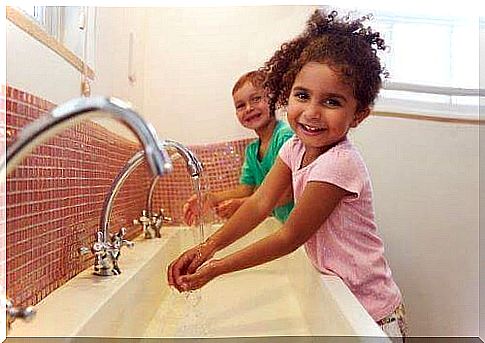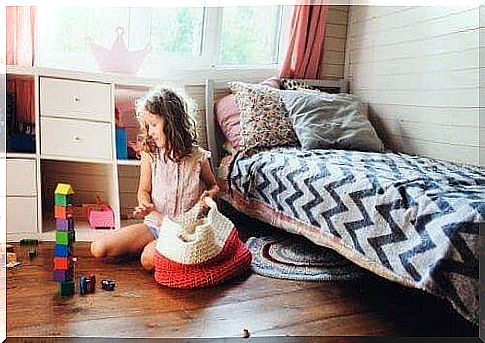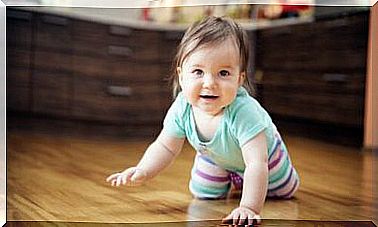Benefits Of Routines For A Child

By consolidating routines in a child’s life, this one learns valuable principles such as self-discipline and responsibility that he or she adheres to throughout his or her life. The benefits of routines for a child are manifold, and we will discuss more about them in this article.
Learning good manners is vital to a child’s personality development. Although routines can also be seen as limiting factors, they are essential for the child. Routines are created to help learn appropriate behavior and good manners.
This is an effective way to teach a child to behave properly, as established routines are difficult to modify afterwards. For example, a child can always learn to brush their hair before going out or brush their teeth after every meal.
Not all good habits are learned by nature, but must be learned. They are healthy guides in a child’s life to follow from a very young age.
When should you start consolidating your routines?
It is not advisable to delay the formation of routines too much, but to start consolidating them as soon as the child is born. It is common for a child to learn certain routines as early as the first year of life. By procrastinating, the child may adopt bad habits that can be difficult to change.
When a schedule is set for eating, washing, and sleeping when a child is young, he or she automatically learns to adjust to routines as he or she grows up. More broadly, this helps the child adapt to new routines, for example, when preschool, school, and new extracurricular activities begin.

From a young age, the child imitates everything they see, whether it is positive or negative behavior. Initially, this is because the child cannot distinguish between what is right and what is wrong. That is why it is important for parents to teach good habits and routines by their own example.
The importance of habits and routines for the child
Establishing schedules and following routines brings a lot of benefits to the child. These include:
- Teach your child to be neat and maintain order.
- Serves the development of autonomy.
- Produces a sense of security and stability.
- Create a peaceful environment.
- Less uncertainty and anxiety as activities are predictable.
The first step should be to set a schedule for when the child will eat, wash, and sleep. It is advisable to commit to these schedules and follow the family’s own daily schedule.
As the child grows, new activities, such as studying and playing, should be added to the schedule, however, so that the routine already created is not disturbed.
The connection of habits and routines to learning
Habits are a form of learning that helps to establish a child’s self-regulation of behavior and self-discipline. Routines help the child adjust to the school system. The main goal of learning in school, and especially in preschool, is to learn to follow routines.
Creating routines and setting schedules also helps the child better understand time and space, as well as focus on a specific task at a specific time.
They help the child plan things as well as work to achieve their goals on a daily basis. This helps the child to start and finish their task effectively instead of being left out and the child jumping from one task to another.
The benefits of routines for the child
Routines help the little ones in the family learn the right kind of behavior and activities. Each family member should commit to following routines so that the child learns by example.
While learning good habits as part of daily routines, the child also learns the following:
- To wait for the future and manage their anxiety
- Easily adapt to different situations
- To be systematic at the same pace as an adult
- Standards and restrictions that everyone should respect

Parents need to keep in mind that establishing effective routines in a child’s mind requires parents to set an example. It also requires the participation of each family member in daily routines. Otherwise, the child may adopt bad habits.
Children have an endless amount of capacity and ability to develop and learn. The more good habits a child adopts, the better his or her chances of succeeding in his or her life, whatever he or she ever wants to achieve in the future.









